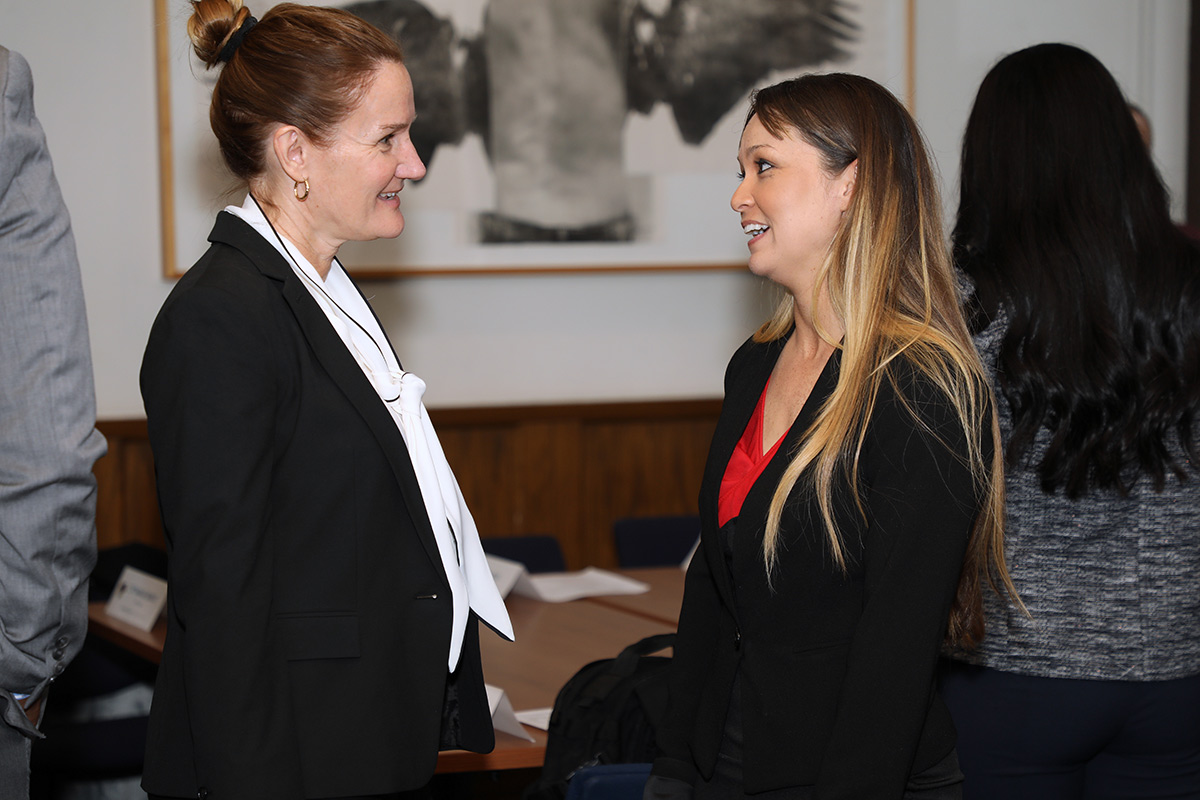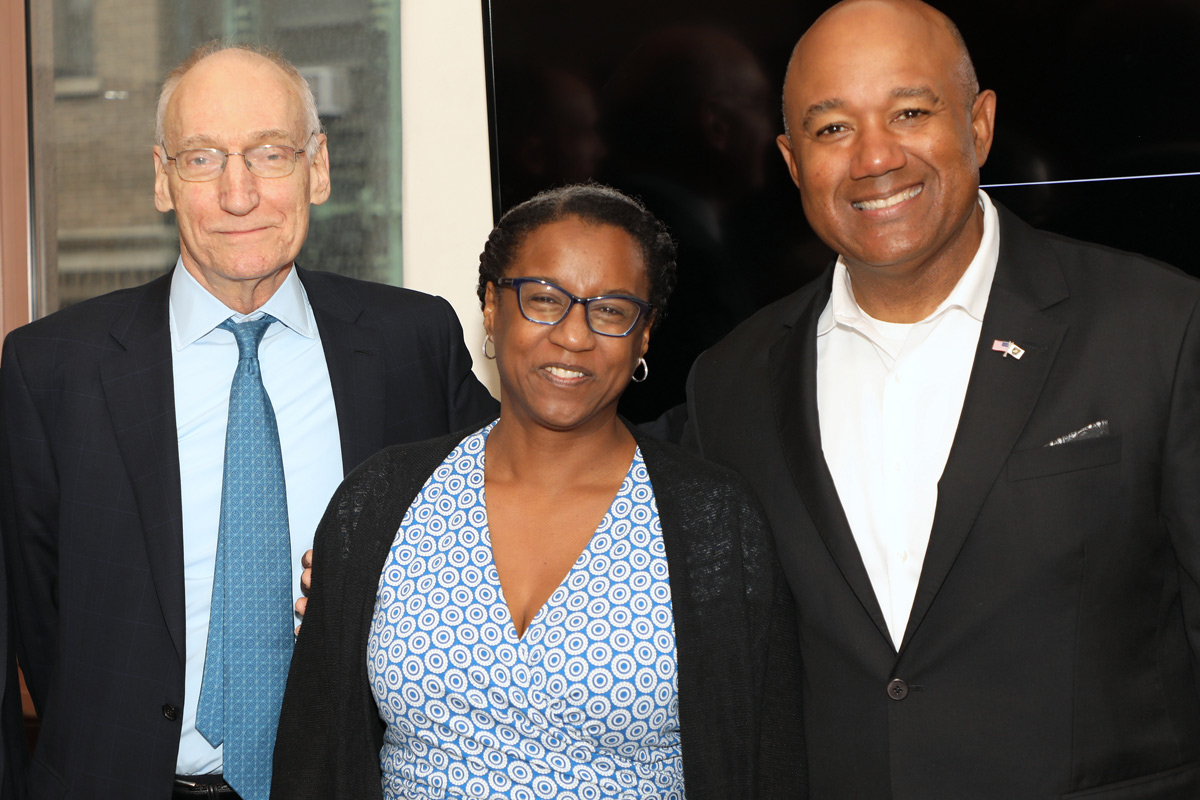Fifteen years have passed since the U.S. Military Academy at West Point (the oldest of the three U.S. military academies) joined forces with Teachers College (the nation’s first and largest graduate school of education) to help company commanders at West Point hone their leadership skills.
Since 2005, nearly 300 of West Point’s Tactical Officers, who supervise the cadets and integrate their education and training, have earned TC master’s degrees through the Eisenhower Leader Development Program (ELDP). Due in large part to the success of ELDP, West Point and TC launched a sister program in 2015, the Benavidez Leader Development Program, to equip non-commissioned TAC officers with the key theories taught in ELDP. Both programs are jointly operated by TC and West Point but based in the College’s program in Social-Organizational Psychology in the Department of Organization & Leadership, where they are overseen by Senior Lecturer Gina Buontempo.
“Teachers College and the city of New York provided me the opportunity to refocus my learning on readiness and team learning,” said ELDP graduate Captain Christina Fenstermaker, a combat veteran aviator, while speaking at TC in early October at a celebration of ELDP’s 15th anniversary. “It also gave me an opportunity to look in the mirror to see what kind of leader I had been and the kind of leader I want to be.”
Teachers College and the city of New York provided me the opportunity to refocus my learning on readiness and team learning. It also gave me an opportunity to look in the mirror to see what kind of leader I had been and the kind of leader I want to be.
—Captain Christina Fenstermaker
Held in Grace Dodge Hall, the ceremonial event brought TC and West Point dignitaries together with ELDP graduates and TAC officers enrolled in the 15th ELDP cohort.
“Outsiders are often surprised by our deep relationship with West Point and I can understand why some people might think that,” TC President Thomas Bailey told the gathering. “But for anyone who understands what we really do, the connection to West Point makes perfect sense. West Point and TC share a mission to maximize learning, both individuals and organizations, in the pursuit of a better world.”

BUILDING TRUST Captain and ELDP alumna Christina Fenstermaker (at right, with Sarah Brazaitis, TC Professor of Practice) says the program promotes “understanding without judgment.” (Photo: Maria Vullo)
West Point Superintendent Lt. General Darryl Williams said that the teachings of TC faculty ultimately reach Army outposts around the globe.
“ELDP graduates are not only leading cadets — they are showing them how to lead themselves,” said Williams. “And the leadership they absorb through the Eisenhower Leadership Program is equipping them with the theory, the knowledge and the skills to develop these future leaders. In other words, TC is developing the leaders who in turn will be charged with developing the Army’s future leaders.”
West Point and TC share a mission to maximize learning, both individuals and organizations, in the pursuit of a better world.
—Thomas Bailey
The foundation for the Eisenhower and Benavidez Leader Development Programs are grounded in the theory of “learning agility” developed by W. Warner Burke, the Edward Lee Thorndike Professor of Psychology & Education and ELDP co-founder.
The theory, Bailey explained, reinforces the strength of drawing from multiple sources to meet the challenges confronting leaders in moments of unanticipated change.
Paraphrasing retired Brigadier General and Social-Organizational Psychology Program alumnus Bernard Banks (Ph.D. ’11), Bailey described Burke’s framework as the perfect fit for a program dedicated to “teaching leaders to be open communicators.”
The cadets under Fenstermaker’s command are among the beneficiaries of the principle of learning agility advanced by Burke.
“As I ask my cadets essential questions and challenge their assumptions in coaching sessions I allow room and time for them to generate ideas and agendas for their own goals and visions,” Fenstermaker said. “I’ve found that incorporating the mindfulness allows me to correlate different areas in a cadet’s life, including family, finances, friends, occupation and other influencing factors. The ability to understand a situation without judgement is key to building trust.”
In sum, said West Point Superintendent Williams, “the great work we are doing at Teachers College is helping to build and sustain Army readiness.”
